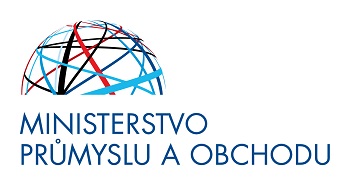A Hybrid System Ensures User Comfort and More Affordable Heating for Family Homes and Industrial Buildings
The device, unique on the European market, responds to the growing demand for safe and sustainable energy using multiple sources. The roughly three-year research project was financially supported by the Ministry of Industry and Trade under the TRIO program.
The system combines biomass combustion in the form of wood pellets with a heat pump.
The long-term partners from the private company BENEKOVterm and the Research Energy Center (VEC), part of the Centre for Energy and Environmental Technologies (CEET) at VSB-TUO, began working on this concept about five years ago in an effort to bring a new approach to the market.
Subsequent changes in the geopolitical situation, including the energy crisis triggered by the war in Ukraine, proved that this was a very visionary and strategic decision.
“The goal was to combine the best of biomass combustion and heat pump technology.
The result is a unique hybrid pellet boiler unlike anything else in Europe. Hybrid operation always allows the system to find the cheaper heating option compared to relying on just one source,” said Leopold Benda, project leader from BENEKOVterm.
In addition to combining both heating methods, the device is exceptional thanks to its custom-developed control system. “The control unit automatically evaluates, based on the needs of the building and the current prices of electricity and pellets, whether it is more economical to use the pellet boiler or the heat pump. Based on this evaluation, it automatically switches between the two. It thus replaces human operation and makes the system fully autonomous.
Our solution is therefore not only comprehensive but also smart,” explained Jiří Horák, co-investigator from the Research Energy Center at CEET.
According to Horák, during the development of three device variants with heat outputs of 10, 25, and 90 kilowatts (for different types of buildings), the researchers applied their extensive experience with solid fuel combustion, combustion process optimization, and combustion air supply optimization. “Our long-term goal is to contribute to increasing heating efficiency and reducing pollutant emissions. The hybrid device we developed is one of the options for moving away from fossil fuels while offering users operational comfort and flexibility, as they are not dependent on just one heat source,” Horák added.
The use of multiple heating sources is already quite common in Czech households, especially due to rising energy prices. For instance, people with a heat pump often supplement heating with wood-burning stoves. “However, combining these two heating methods into a single fully automated device is truly exceptional. Innovation was one of the main factors highlighted by the project evaluators. It is also an excellent example of collaboration between the academic and commercial sectors and the successful transfer of research results into practice. Unintentionally, we even anticipated upcoming changes in European legislation that will require the integration of heat pumps,” Benda concluded.
The developers expect that, thanks to lower operating costs compared to standalone heat pumps or pellet boilers, the hybrid system will be attractive to investors.
The price of the most popular model with a thermal output of 25 kW (25 kW pellet boiler + 10 kW air-to-water heat pump) starts at approximately 400,000 CZK.
Project name: Intelligent Hybrid Heat Source up to 100 kW
Program: TRIO (Ministry of Industry and Trade)
